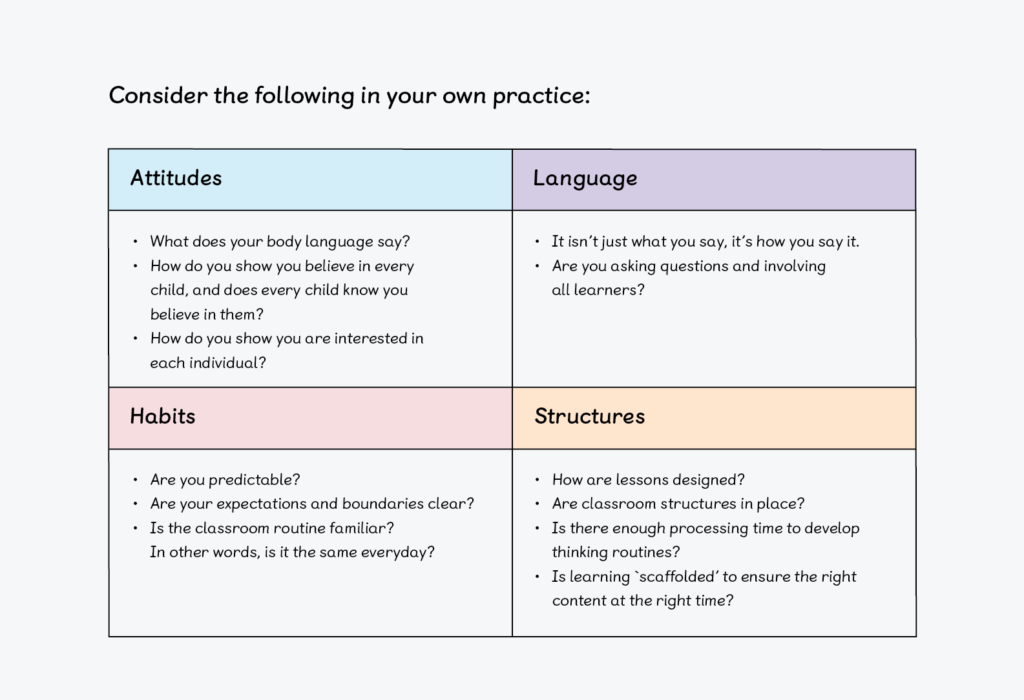Creating a psychologically safe classroom post-pandemic
The single most important factor in a child’s schooling is how they feel about themselves as individuals and as learners within the classroom.
When Maths — No Problem! asked me to write a blog from the perspective of a post-pandemic school, my initial thoughts were, What are we doing to fill the gaps? How are we ensuring our children will catch up? What is our tutoring offer?
But then, I stopped. Maybe there is a place for such an approach, but it’s not the whole picture. Not here anyway. And I’m pretty sure it’s the same in many schools across the country.
So, what do our children need in a post-pandemic school? This blog will explore two fields of thought: The Psychologically Safe Classroom and Restorative Practice. The former is based on a challenge from Becky Carlzon, co-author of The Learning Powered Approach. The latter is the work of the wonderful Mark Finnis who, in his book Restorative Practice, explores the value of relationships within a school setting.
Creating a psychologically safe environment
We were fortunate enough to host Becky at our school conference a couple of weeks ago and heard her speak with passion and integrity about the importance of the Psychologically Safe Classroom.
The children in our area were disproportionately affected by the pandemic, and many of them experienced loss and grief for the first time. They were without their friends, their teachers and their safe place — school. We welcomed back our children with open arms and smiles in the hope they felt ready to get back to learning, but a few other things needed to be in place first.
The psychologically safe classroom is probably the type of classroom we all set out to achieve when we first embark on our teaching career, though we may not have referred to it as such.
The main question to ask yourself is:
how do I want my pupils to feel in my learning environment?
Many teachers would say:
- Confident
- Safe
- Comfortable
- Welcome
- Valued
- Respected
- Liked
Without these things in place and embedded, learning simply won’t happen. The single most important factor in a child’s schooling is how they feel about themselves as individuals and as learners within the classroom.
Transform Your Maths Assessment
Insights — our online assessment tool — gives you instant, powerful data to identify gaps and improve results.

What are the four pillars of creating the Psychologically Safe Classroom?
- Attitudes
- Language
- Habits
- Structures

How to build positive relationships with Restorative Practice
As I mentioned, learning won’t happen unless the environment supports it. Restorative Practice looks at being proactive in building the kinds of positive relationships that allow learning communities to flourish. The emphasis is on creating a positive learning environment.
Restorative Practice considers the power of positive relationships across whole school communities as an underlying ethos upon which to build.
Mark Finnis talks about pulling people in, building a family in which everyone belongs. This translates into the classroom and links back to the Psychologically Safe Classroom. Children need to feel part of the class, part of the family. Only then will they take risks in their learning, they’ll want to take part and ask a question that previously they may not have dared to ask. The culture and ethos allows it. In fact, the culture and ethos expect it!
So, next time anybody asks you how you are supporting your children in the post-pandemic school, remember there aren’t any hard and fast rules for getting children ‘back on track,’ but there are considered approaches that can be taken and cultures that can be adopted to make your classroom as inviting as possible for every learner. In turn and with time, this might just help nudge learning forward for all children.
